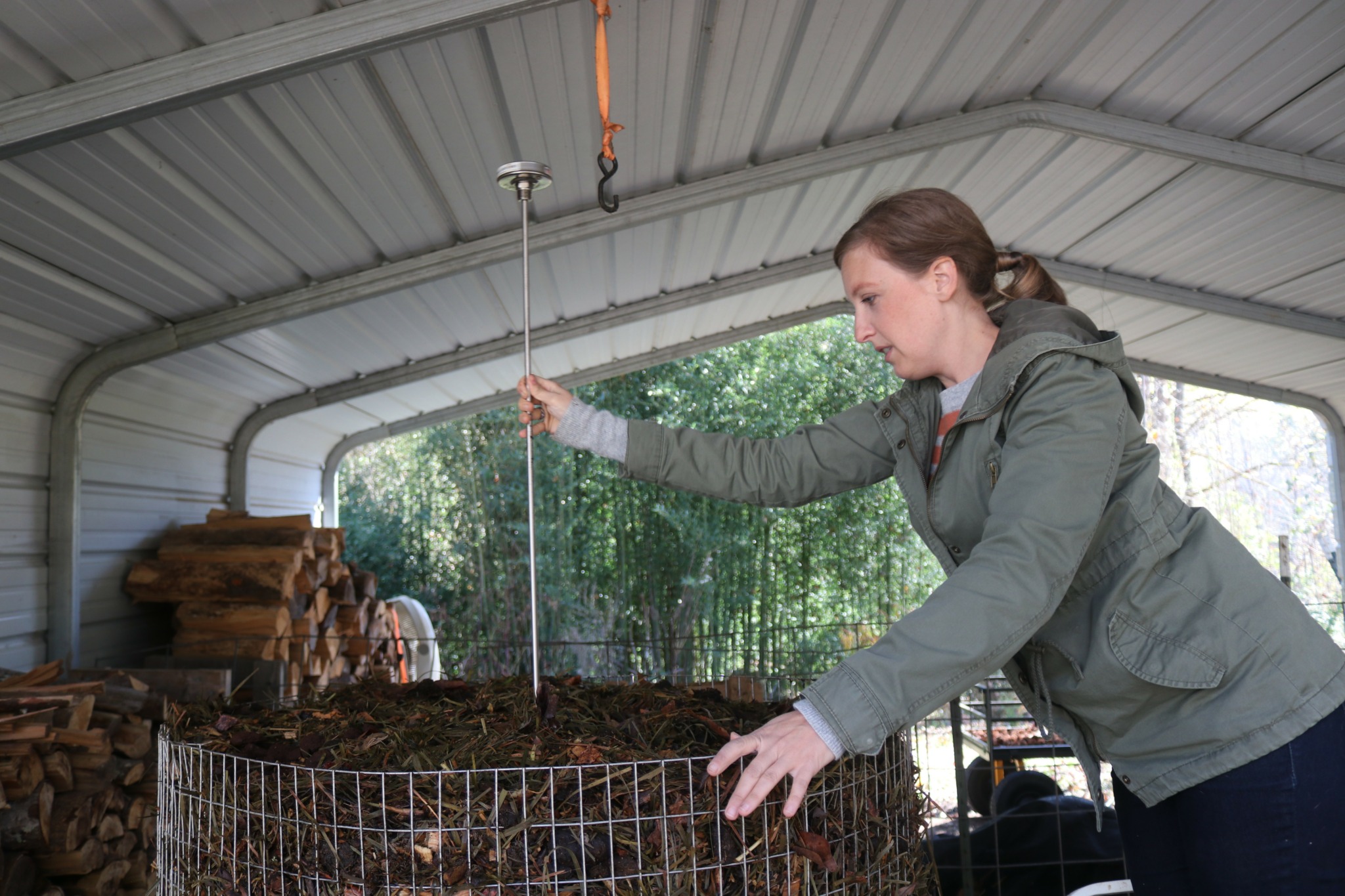We caught up with the brilliant and insightful Krisi Olivero a few weeks ago and have shared our conversation below.
Alright, Krisi thanks for taking the time to share your stories and insights with us today. One of the things we most admire about small businesses is their ability to diverge from the corporate/industry standard. Is there something that you or your brand do that differs from the industry standard? We’d love to hear about it as well as any stories you might have that illustrate how or why this difference matters.
Alter Eco Farms produces biological soil amendments, which regenerate soil and break the cycle of additive fertilizers that so many farmers and gardeners have become trapped by. We fix your soil, for good.
When you purchase a bag of compost at a commercial store you are bringing home decomposed organic matter, and maybe some added nutrient supplements. The product will work for a time and then eventually break down into your soil and the nutrients will begin to fade. Next season you will do it again. You will continue to give your soil nutrients as you would give yourself supplemental vitamins.
Our compost contain a key ingredient that the average amendment is missing – living microorganisms. In nature, soil microorganisms (microbes) are responsible for natural nutrient cycling in plants, providing plants with everything they need to succeed. Unfortunately most of our farmed soils have lost these populations of beneficial microbes through tilling, compaction and the use of chemical fertilizers. It is our job to bring them back, restoring your soil to its perfectly balanced native state. Our products have been proven to increase nutrient cycling, protect plants from pests and diseases, increase yield, open soil structure, provide more flavorful, nutrient-dense crops and sequester carbon to boot! Sustained use of our products, in combination with natural farming practices, can help our customers cut the cost and labor of annual amendments, all while enjoying improved crops.
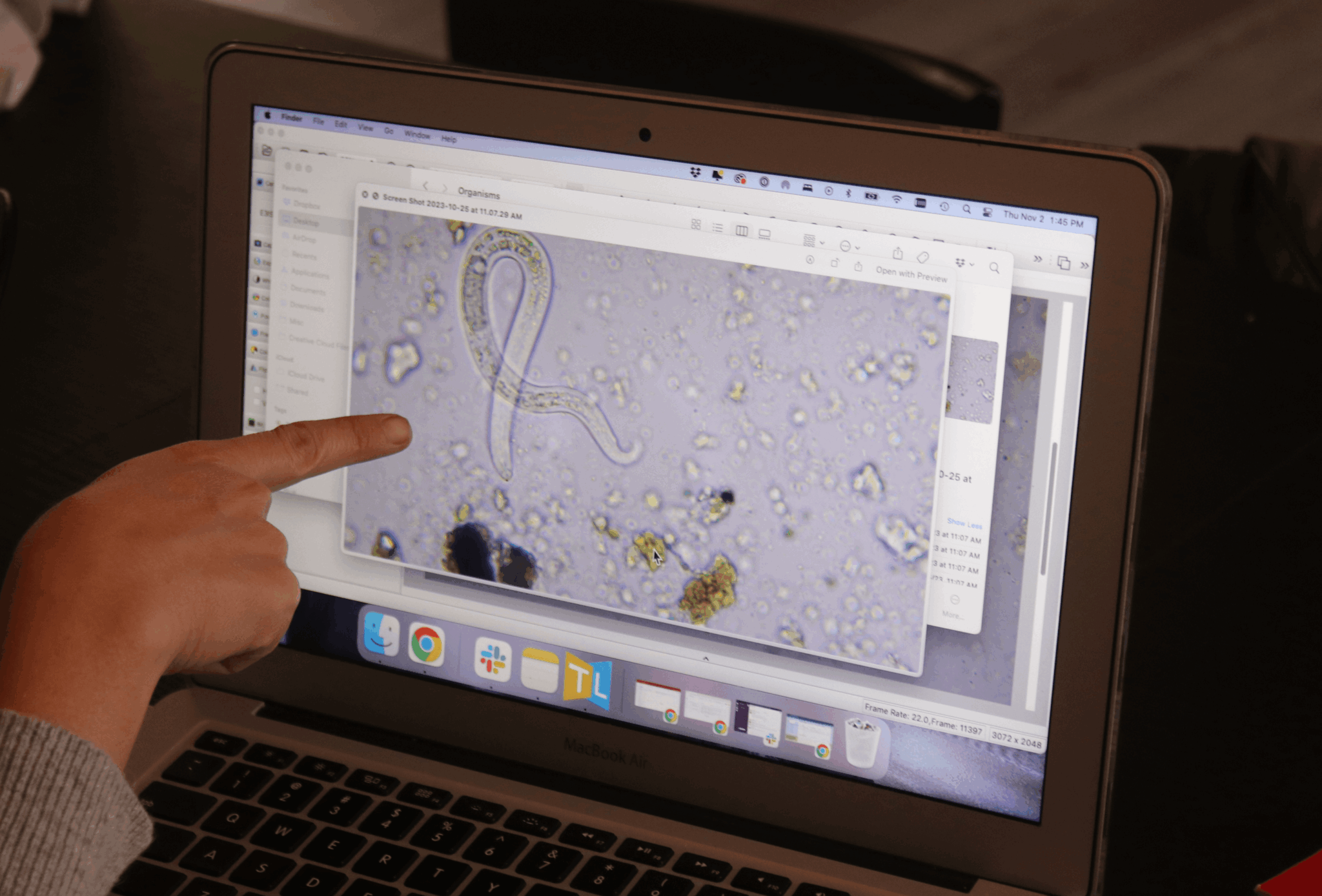
As always, we appreciate you sharing your insights and we’ve got a few more questions for you, but before we get to all of that can you take a minute to introduce yourself and give our readers some of your back background and context?
We are soil nerds on a mission to regenerate as much soil on this planet as possible.
We came to this business because we wanted to have a big impact on the health of the global community, but we were just two individuals with little in our pockets to put forward. As we started to learn about soil health, we realized what a big impact we could have with just a microscope and our own brains to get us started.
Having trained with Dr. Elaine Ingham’s Soil Food Web School, Alter Eco Farms was born from a compost pile in a car port. And guess what? We still operate out of that slightly souped-up carport. Over the last three years, we have dedicated all that our hearts and brains have to offer to the science of soil and the craft of compost. Through research, experiments, tests and a whole lot of trial and error, we have come to create our biologically rich compost products, a product hard to find in the “fertilizer” scene.
What makes our compost products unique is that all of our products contain a full and balanced population of beneficial soil microorganisms. Unlike traditional compost, our products contain living organisms that work tirelessly to restore natural nutrient cycling, the benefits of which include pest and disease protection, improved soil structure, increased yields, nutrient rich crops and carbon sequestration.
We are often asked why we would add microorganisms to our soils? Well, it’s because they were naturally there in the first place. The simplest way to demonstrate this is to think of an old growth forest, which sustains itself entirely, thanks to the magic of microorganisms. No one is fertilizing the forest, so why do we need to fertilize our soil to produce crops? Because we have lost all of our microbes due to practices such as tilling, chemical fertilizers and compaction. Additive amendments have become a band aid for a broken biological system. But we don’t need to use band-aids. We can fix the problem for good, saving everyone time and money, while increasing the quality of the food that hits our plates.
In the end, our products restore the natural food web that so many of our worlds soils have lost, regenerating our soil and getting it back to the beautiful state nature always intended.
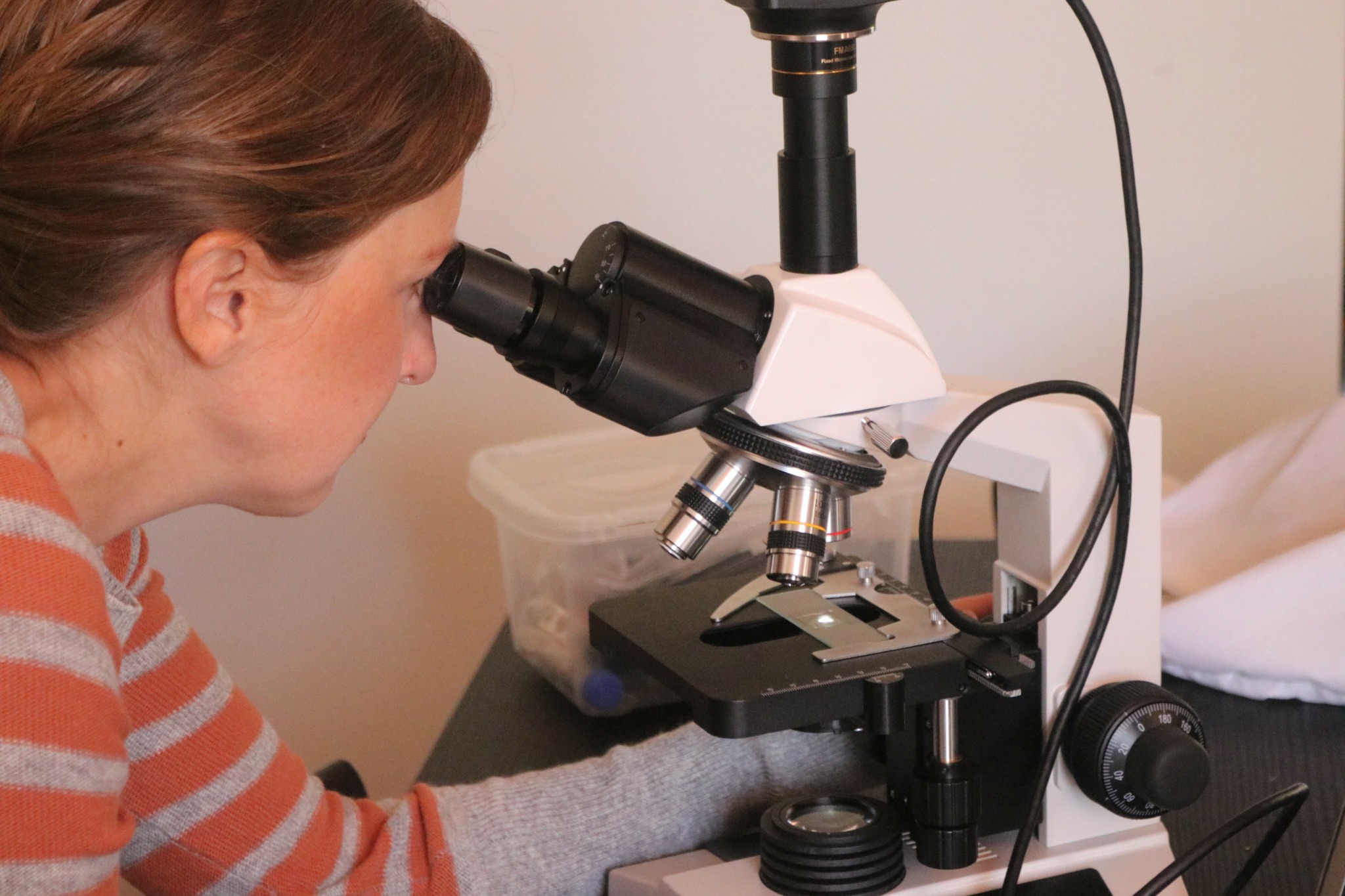
Learning and unlearning are both critical parts of growth – can you share a story of a time when you had to unlearn a lesson?
My first career was in film and television, mostly in advertising. My world moved at one thousand miles a minute. A short day was a ten hour day. A short week was six days. I lived through my job. EVERYTHING was my job- my lifestyle choices, my financial stability and my self worth.
When I switched careers and started to focus on soil science I had to learn to slow down. One item on my to-do list could take six months to complete, and completion could come in the form of a “failed” experiment that simply told me what NOT to do. I had to learn that success isn’t always measured in checklists or dollars and cents, sometimes it’s measured in micrograms.
In all of that down time between “successes”, I have learned to appreciate that a full life is so much bigger than the life that pays my bills. I have come to understand that some of the best parts of life are the times where you don’t know what to do next, and just need to sit outside and have a nice think. I have learned that the natural world moves slowly, and maybe it’s for good reason.
Success no longer means flashy screens, high views and a cult like following to me. Success now means time to breathe, time to grow, and time to let nature lead the way, as she chooses… a soil science cult does sound cool though.
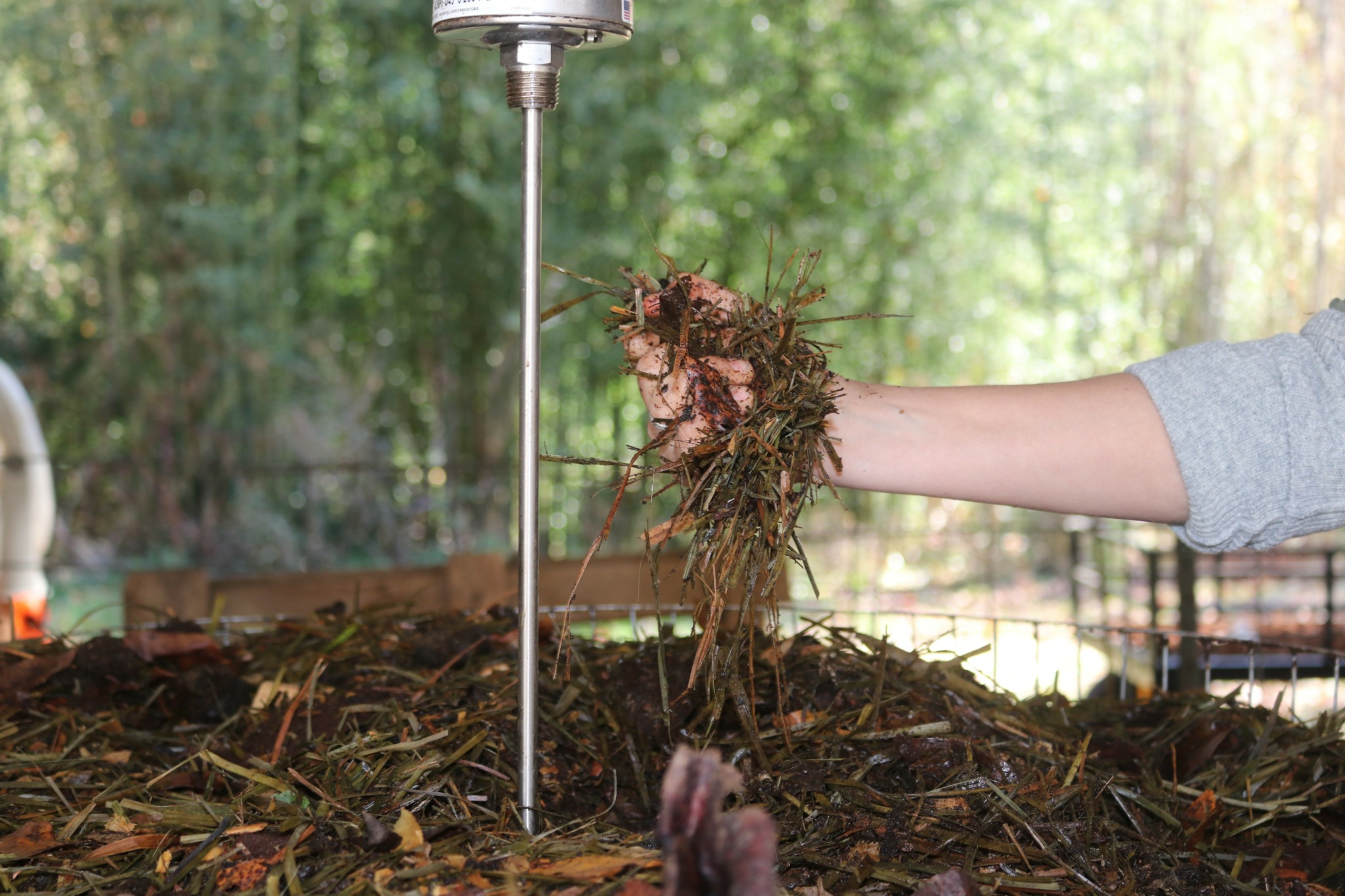
Let’s talk about resilience next – do you have a story you can share with us?
In 2023 I lost my father to a life long battle with his mental health. This is how we say “suicide” in public society so that people don’t immediately avoid eye contact and squirm.
Most of my life I have personally struggled with my own mental health. I have survived debilitating depression, fought through suicidal ideations and have on more than one occasion had to call a trusted friend to talk me down. It’s chemical, I know this, but that does not make it any easier.
I had always been of the opinion that mental heath struggles were surmountable, as long as you were honest with yourself, asked for help and waited it out. It was always temporary. That “temporary truth” pulled me through. But when we lost my father, it wasn’t fixable. It was done. And it wasn’t chemical. It was very, very, real and physically present in the form of the largest vacuum of air the world has ever known, where my father once stood.
At the time I had been working in a very fast paced career that often took a toll on my mental well being. I would skip food, sleep, exercise, sunshine, anything to get the job done, often at the risk of my health. I always told myself it was ok, because I could fix it later. I used to tell myself that I could work five weeks nonstop, if I could just have one week off after to fix everything I had broken in the process. And then, one day everything stopped, it had to.
I am by no means fully healed from the experience of losing my father, but I am in every way changed. To stay on this planet, I had to learn to reframe all of the unhealthy thinking styles that had sustained me for so many years. I had to learn that mental health is work, not a waiting game. I had to learn to say “no” instead of saying “I can square that with myself later”. I had to learn to protect my peace. I had to learn that life requires balance. I had to learn to slow down, so that I didn’t choose to stop forever. I am forever grateful that working with nature naturally makes all of this work possible.
Contact Info:
- Website: https://www.alterecofarms.com/
- Instagram: @alter_eco_farms
- Other: Blue Sky – https://bsky.app/profile/alterecofarms.bsky.social
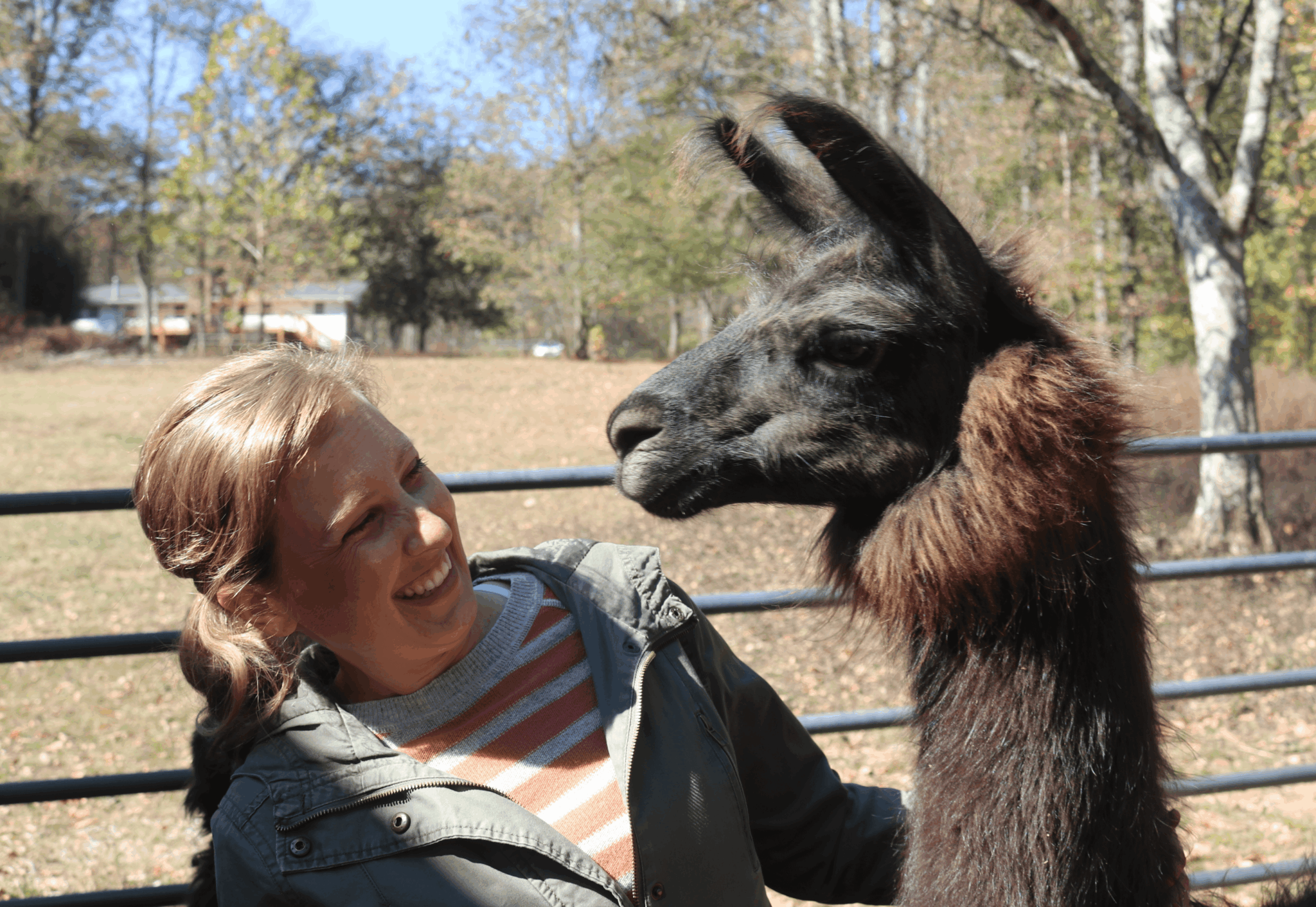
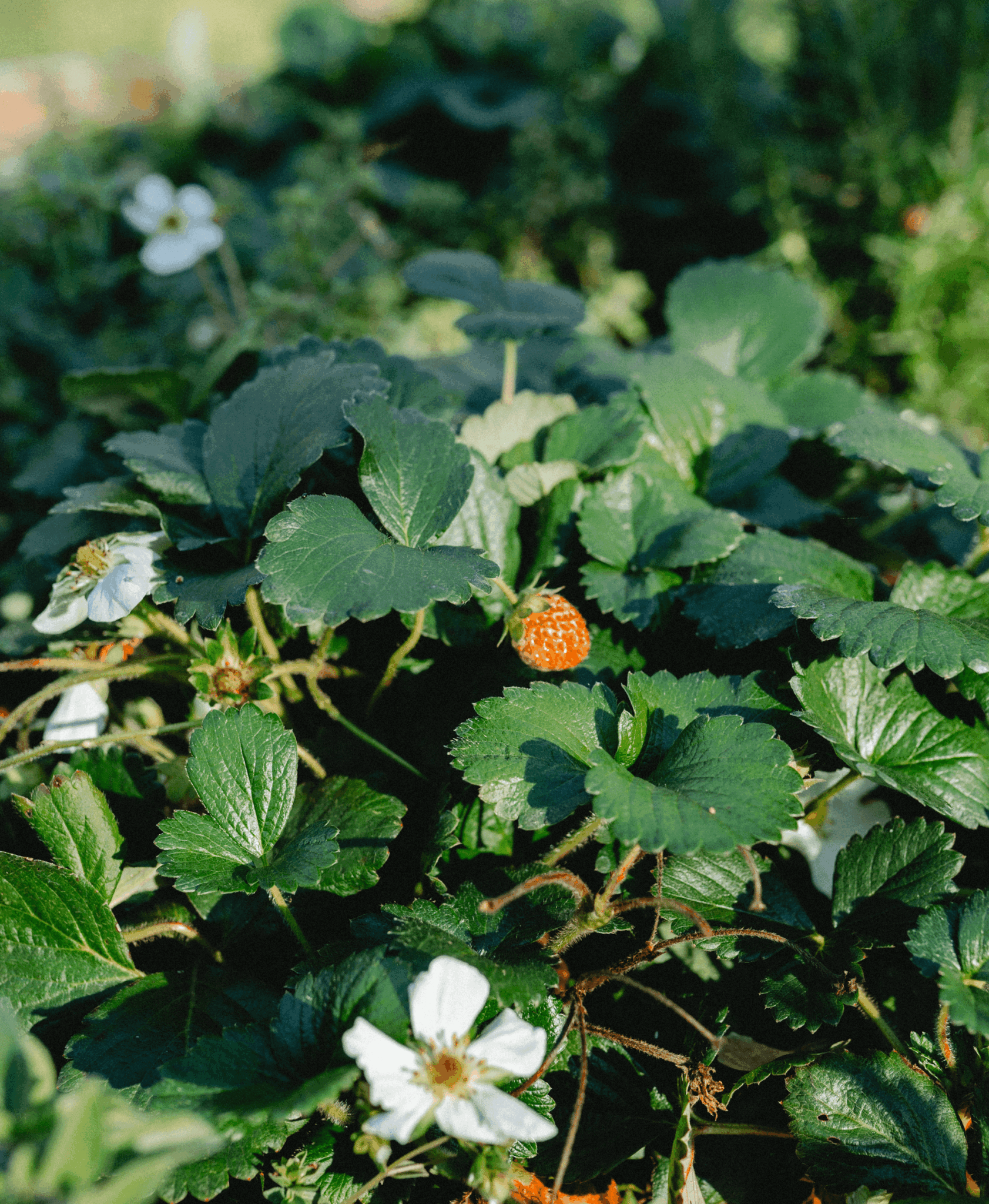
Image Credits
Ruth Lunsford
Amanda Olivero


